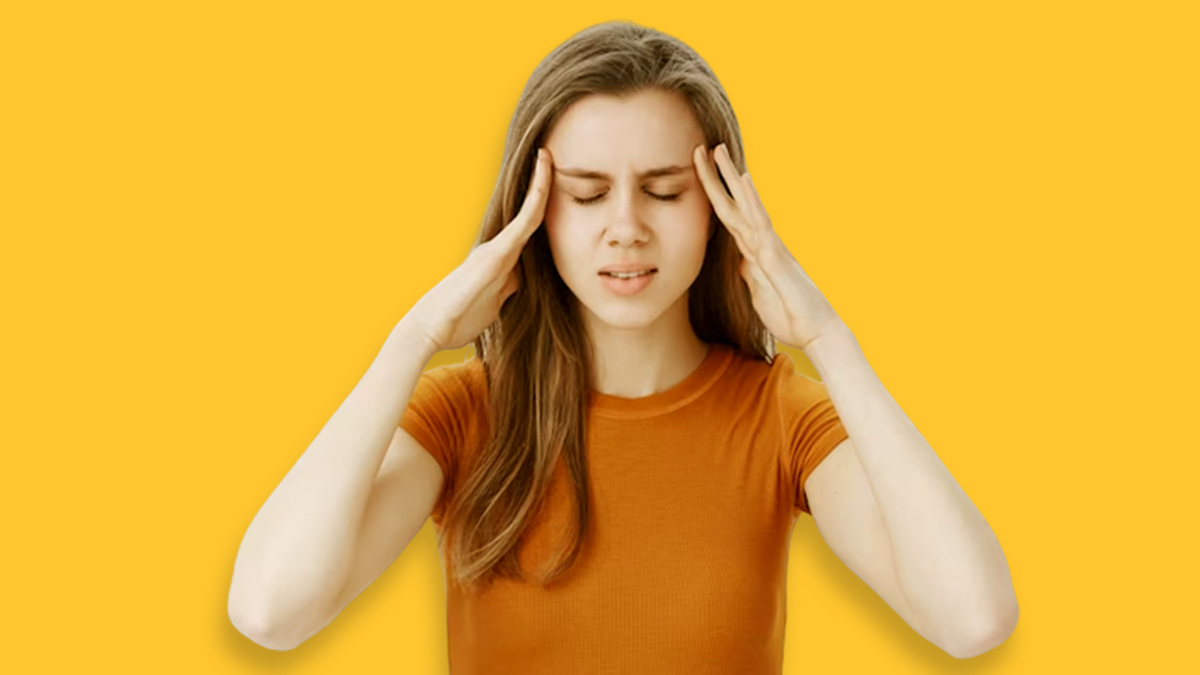
As women enter their 30s and beyond, they may find themselves facing new challenges related to their health, including the onset of menopause. As per Menopause Unveiled: India's First menopause industry report by Menoveda, 56.2% of women.
Table of Content:-
Symptoms Women Were Experiencing But Were Unaware of Due To Menstrual Migraine
"For many women, this transition brings not only hormonal changes but also an increased risk of migraines, particularly menstrual migraines. Menstrual migraines are headaches that occur in association with a woman's menstrual cycle, and they can be debilitating," said Tamanna Singh , Menopause Coach and founder of Menoveda, India's 1st menopause only brand.

Also read: Fasting On Your Period: Does It Improve Or Worsen Menstrual Symptoms?
Menstrual Migraines
Menstrual migraines are a specific type of migraine headache that occurs in relation to a woman's menstrual cycle. They typically occur in the days leading up to menstruation and may continue through the first few days of bleeding. Symptoms of menstrual migraines can include severe headache pain, nausea, vomiting, and sensitivity to light and sound. These migraines can be particularly challenging to manage, as they often coincide with other symptoms of menopause, such as hot flashes and mood swings.
Why Menstrual Migraines Increase During Menopause
The exact cause of menstrual migraines during menopause is not fully understood, but hormonal fluctuations are believed to play a significant role. As women approach menopause, their estrogen levels begin to decline, which can trigger migraines in susceptible individuals. Additionally, changes in hormone levels can disrupt the delicate balance of neurotransmitters in the brain, further contributing to migraine symptoms. Other factors that may contribute to menstrual migraines during menopause include stress, poor sleep, and dietary triggers.

Tips for Managing Menstrual Migraines During Menopause
While menstrual migraines can be challenging to manage, there are several strategies that women can use to reduce their frequency and severity:
Natural Solutions For Migraine
Ayurveda offers natural solutions for menopausal symptoms and menstrual migraines. Through dietary adjustments, herbal remedies like Shatavari and Ashwagandha, and practices like yoga and meditation, Ayurveda aims to balance hormones and promote overall well-being without relying on hormone replacement therapy.
Lifestyle Modifications
Making certain lifestyle changes can also help manage menstrual migraines during menopause. This includes getting regular exercise, practicing stress-reduction techniques such as yoga or meditation, maintaining a healthy diet, and avoiding known migraine triggers such as certain foods or environmental factors.
Also read: Pads, Tampons, And Menstrual Cups: How Often Should You Change Them?
Medications
There are several medications available that can help prevent or treat menstrual migraines. These include over-the-counter pain relievers such as ibuprofen or acetaminophen, as well as prescription medications such as triptans or preventive medications like beta-blockers or antidepressants. It's essential to work closely with a healthcare provider to find the right medication regimen for your individual needs.
Keep a Migraine Diary
Keeping a migraine diary can help identify triggers and patterns associated with menstrual migraines, allowing women to take proactive steps to prevent them. Recording information such as the timing and severity of migraines, any associated symptoms, potential triggers, and any medications or treatments used can provide valuable insight into managing migraines effectively.
Seek Support
Living with menstrual migraines during menopause can be challenging, both physically and emotionally. It's essential for women to seek support from their healthcare providers, as well as friends, family members, or support groups who understand what they're going through. Talking openly about migraines and seeking support can help women feel less isolated and better equipped to manage their symptoms.
Menstrual migraines can be extremely painful and inconvenient for women undergoing menopause, but they do not have to take over their lives. Understanding the triggers and patterns of menstrual migraines, as well as implementing proper management strategies, can help women reduce the frequency and severity of their symptoms and regain control of their health. If you are experiencing menstrual migraines during menopause, please contact your healthcare provider for specific advice and support.
Also watch this video
How we keep this article up to date:
We work with experts and keep a close eye on the latest in health and wellness. Whenever there is a new research or helpful information, we update our articles with accurate and useful advice.
Current Version